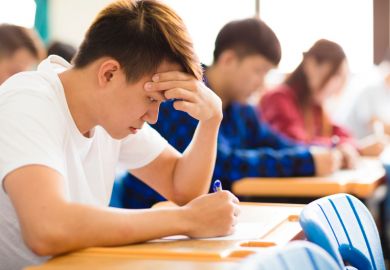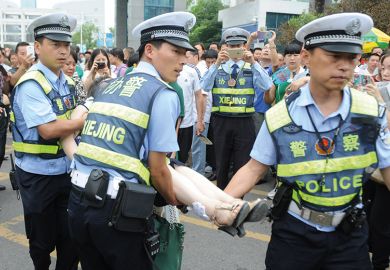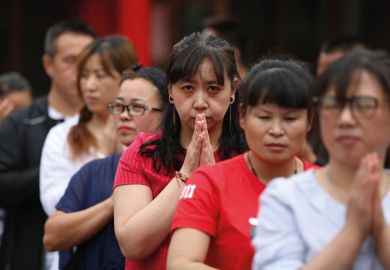An entertainer’s apology for wrongdoing has called attention to inequities in the Chinese education system just as 10 million high school seniors across the nation are preparing for the stressful gao kao college entrance exam.
Tong Zhuo, a 26-year-old singer and actor, joked in a live chat with fans in late May that he had sidestepped the country’s strict admissions system several years ago.
The son of a Shanxi Province official, Mr Tong admitted that he had failed the gao kao the first time around, so he falsified personal information to make it appear that he had graduated from high school a year later than he actually had. For most students, there are no second chances after an exam failure, but Mr Tong ended up at the prestigious Central Academy of Drama in Beijing.
“We used a lot of so-called guanxi and then I ‘became’ a fresh high school graduate,” he said laughing, in a post seen by the South China Morning Post. “Guanxi”, which means relationship, can also refer to nepotism.
His comments sparked angry online responses even though the cheating took place several years ago. “This celebrity sent the public into outrage,” state media wrote.
Mr Tong has since posted a handwritten apology on Weibo, a Chinese social media platform, and has asked the school to withdraw his diploma. His father, Tong Tianfeng, is reportedly under investigation.
According to a government Weibo channel, the Shanxi Education Department said it placed “great importance” on the allegations and would investigate to “safeguard fairness and equality”.
This year is even more stressful than usual for high school seniors because in-person teaching was suspended in early February amid the coronavirus outbreak and started reopening in stages only recently. The gao kao, which is now going ahead in July after a one-month delay, usually requires months of intense classroom preparation.
Ceren Ergenc, an associate professor in the department of China studies at Xi’an Jiaotong-Liverpool University, wrote in Times Higher Education last year that gao kao “preparation is arduous and stressful”.
“Many schools’ schedules involve 13 hours a day of lectures and studying, plus an hour for exercise. This leaves no time for art or music, and students manage only about five hours of sleep a night, plus an hour’s nap during the day.”
Mr Tong’s revelation comes at a time when students and parents are growing increasingly vocal about inequities in the education system.
There are concerns that disadvantaged students from low-income or rural backgrounds have not been able to replicate gao kao preparation at home during Covid-19 lockdowns – at least not at the same level of privileged students, who have digital tools, dedicated study spaces, tutoring and parental support.
Recent research has shown widespread unhappiness with the gao kao, which “strongly favours” affluent urbanites on account of a quota system based on residency. Writing in Higher Education Policy, experts have called for an overhaul of the system.
The gao kao has been undergoing gradual reform over the past few years, although not all proposed changes have been welcomed. A call for the introduction of physical education to the exam, backed by 100 officials in May, caused online opposition by students and parents who felt that the two-day examination was strenuous enough, according to The Global Times. A headline in Radii China, an independent media platform, put it more bluntly: “China might add PE to the gao kao and everyone hates it.”
Register to continue
Why register?
- Registration is free and only takes a moment
- Once registered, you can read 3 articles a month
- Sign up for our newsletter
Subscribe
Or subscribe for unlimited access to:
- Unlimited access to news, views, insights & reviews
- Digital editions
- Digital access to THE’s university and college rankings analysis
Already registered or a current subscriber?







